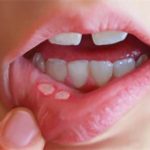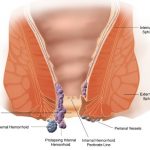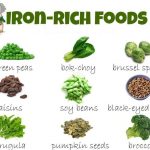Alzheimer’s is a form of dementia affecting about millions of individuals across the globe. It is a progressive type of disorder that gradually worsens over time if timely treatment is not initiated. In addition, it is also necessary that right diagnosis be made as the disease manifests no symptoms during its preliminary stages.
So far there is no complete cure for Alzheimer’s; however, there are various drugs and non – drug approaches that can help combat the symptoms and promote healthy living.

Natural Alzheimer’s Treatment Approach:
There have been several research trials for studying the efficacy of natural treatment for Alzheimer’s. Some research studies have pointed towards the fact that consuming more of nutritious food rich in omega -3 fatty acids and vitamin E can help prevent cognitive decline. In addition, there have also been pieces of evidences suggesting that taking herbal mixtures and vitamin supplements on a daily basis can also help a great deal in controlling cognitive decline which in a way can be helpful in Alzheimer’s treatment. However, the efficacy of all these alternative methods to treat the disease condition is yet to be proved with research based studies. The National Institute of Health (NIH) has clearly put forth the fact that so far there has been no clinical evidence suggesting the effectiveness of these nutrients in Alzheimer’s treatment.
However, of late, there has been certain clinical evidence postulating the effectiveness of an herb named Gingko in treating this disease condition. This herb is a plant extract that is known to have properties that can have a beneficial effect in arresting the cognitive decline. Numerous studies have also confirmed the effectiveness of the Gingko herb in treating Alzheimer’s. The various symptoms where the herb showed effect include depression, apathy, listlessness, anxiety, and behavior during sleeping time. All these symptoms and many showed a more significant degree of improvement with Gingko plant extract.
Another substance that has been found to be effective in treating symptoms of Alzheimer’s is Phosphatidylserine. This substance is involved in the building the structure and maintenance of cell membranes. Several clinical trials have confirmed the fact that Phosphatidylserine has significant positive effects on several symptoms such as depression and mental decline. Studies have postulated the fact that when about 300 mg of this substance was taken daily then it showed a great deal of improvement in cognitive functioning and mental ability of individuals.
Huperzine A is a chemically active compound derived from plant named Huperzia serrata. This compound is widely available as an over the counter prescription for memory loss and impairment. However, very few studies have been done in this regard to prove the efficacy of this drug in Alzheimer’s treatment.
Alzheimer’s Treatment With Drugs:
Two types of drug treatment have been approved for Alzheimer’s treatment. To some extent these drugs are successful in delaying cognitive decline and also provide help with managing the symptoms. The following list speaks of the drugs that have been available for treatment of the disease condition.
1.) Cholinesterase Inhibitors
The basic cause behind the development of this disease condition is brain cell atrophy, which inhibits cell – to cell communication. Cholinesterase inhibitors work by boosting the levels and improve the cell – to – cell communication. The various drugs in this class are donepezil, galantamine and rivastigmine. The majority of the individuals suffering from Alzheimer’s are found to have benefitted from these drugs. These drugs work by inhibiting the enzyme known as acetylcholinesterase from breaking down the acetylcholine in the brain. Due to this, the concentration of acetylcholine increases in the brain, causing an improvement in the cell – to – cell communication. This in turn causes a delay in the declining mental capacity and improves the symptoms. It has also been estimated that about 40 – 60% of individuals benefit from drugs belonging to cholinesterase inhibitors. It also requires mention that, this class of drugs. However, does not show any effect on the behavior changes such as agitation and aggression.
These drugs also have several side effects such as diarrhea, sleep disturbance and nausea. It needs mention that the affected individuals are already suffering from a variety of symptoms and the side effects of the drugs can increase the burden. But, it has also been found that not all individuals experience the unpleasant side effects.
2.) Memantine
Memantine is yet another type of drug that is meant for individuals with moderate to severe Alzheimer’s disease. This drug slows down the progression of this disease and the symptoms. Memantine works by blocking the chemical messenger glutamate – increased concentrations of which causes damage to the brain cells. In many cases, the doctors may prescribe memantine with cholinesterase inhibitors.
Guidelines issued by the National Institute for Health and Clinical Excellence (NICE) state that cholinesterase inhibitors can even be helpful for individuals suffering from a severe form of Alzheimer’s disease. It is also important that, the patients be constantly monitored when they are put on certain classes of drugs. To understand the side effects and monitor the effectiveness of the drugs is also a very important task. Clinical trials are constantly being conducted by scientists across the globe for searching various new class of drugs that have promising long term effects for Alzheimer’s treatment.



















